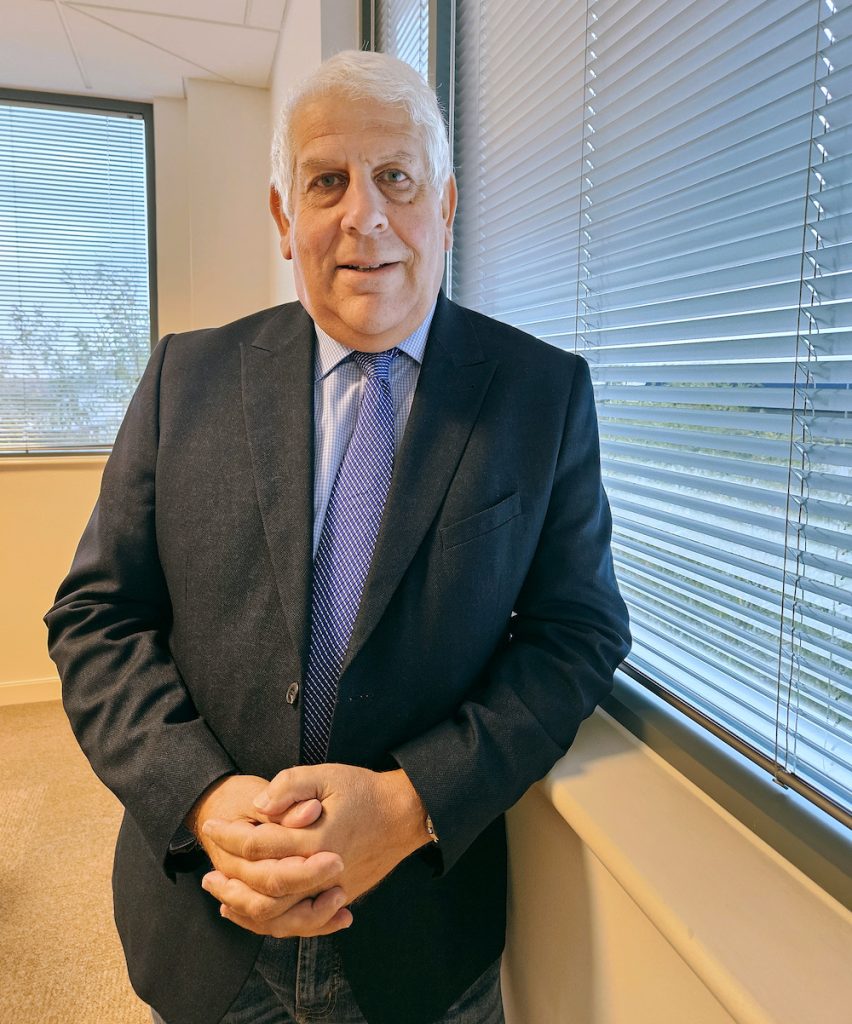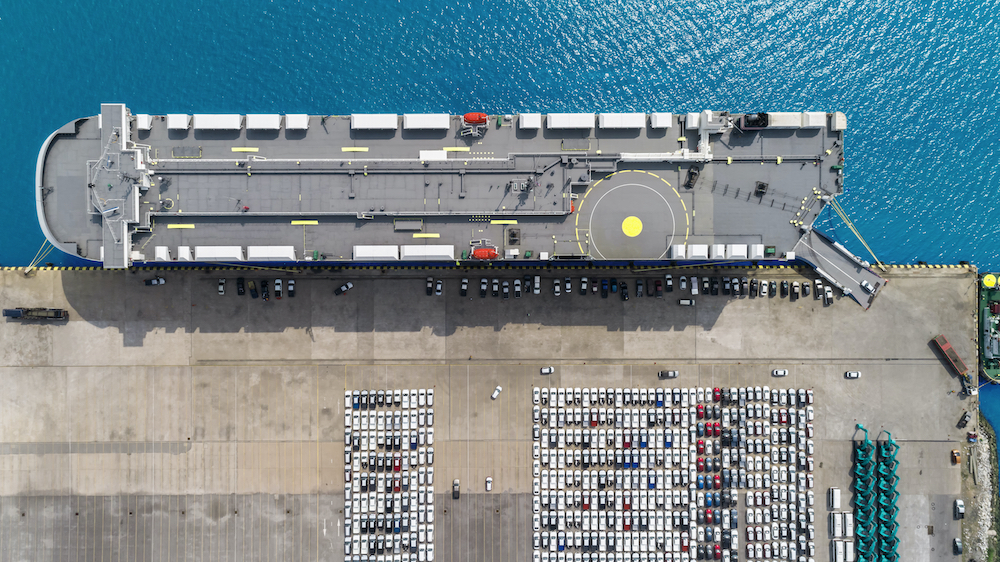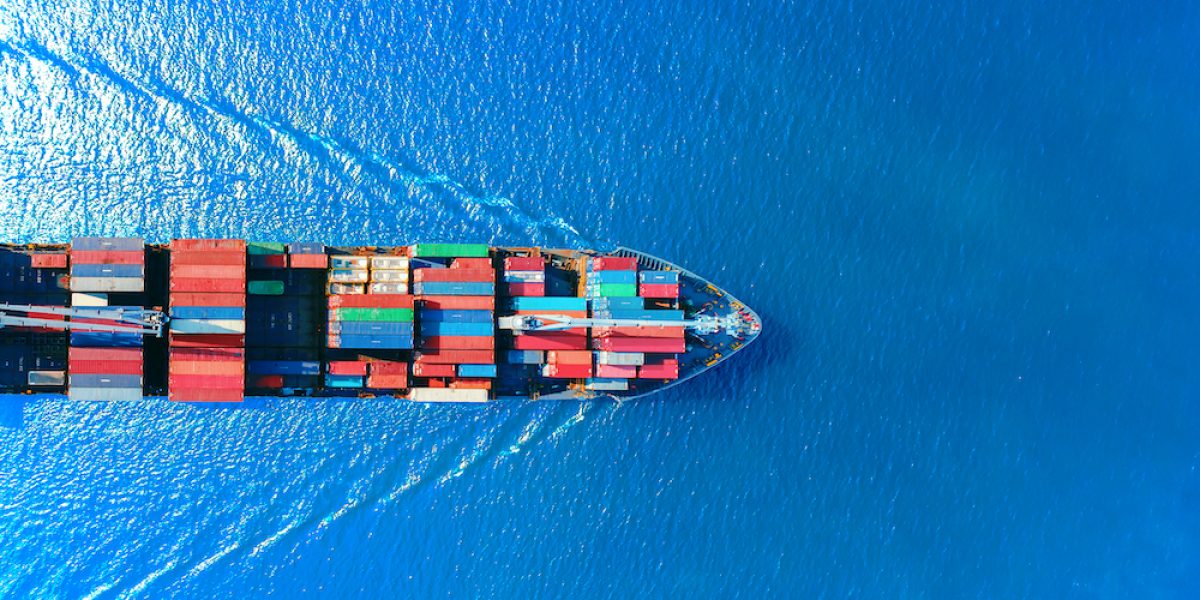Navigating African Trade Finance
We are privileged to interview Dr.Graham Bright JP, Head of Compliance and Operation Euro Exim Bank, a financial institution with global ambitions in trade finance. Euro Exim Bank has set its sights on the African market, a region rich in potential but also marked by unique challenges. We will delve into the inspiration behind Euro Exim Bank’s African expansion, its strategies to adapt to the diverse African market dynamics, and its approach to mitigating risks in African Trade Finance.
The African financial landscape is competitive, and Euro Exim Bank aims to differentiate itself by offering innovative financial products and services that prioritize working capital, facilitate bond raising for smaller companies, and leverage advanced payment guarantees. Mr. Bright will also share insights into Euro Exim Bank’s vision for empowering small and medium-sized enterprises (SMEs) in Africa, a vital driver of economic growth on the continent.
NEE: What inspired Euro Exim Bank’s African expansion? In a region ripe with potential, what factors and opportunities motivated Euro Exim Bank’s decision to enter the African market?
GB: Euro Exim Bank has a global ambition to be the largest fastest and most trusted bank in trade finance. With our expanding sales force, due diligence target market of Tier 2/3 corporates, we felt our services were uniquely positioned to help the individual countries and continent to improve trade links, reduce trade gaps and relieve the pressures created by lack of liquidity, cost of foreign exchange, heavy bureaucracy and credibility. By working with local partners and our ever-expanding network of sales representatives, this contact surface has today enabled us to cover over 40 of the 54 countries in Africa with over 10000 sales consultants offering cost effective solutions.

NEE: How will Euro Exim Bank adapt to Africa’s unique market dynamics? Africa’s economy boasts both strength and complexity. How will Euro Exim Bank adapt its trade finance strategies to navigate this diverse market successfully?
GB: Euro Exim bank has already been active in the region for over 6 years and with local presence have become uniquely attuned to the subtle differences in culture custom taxation legislation and regulation that have traditionally meant nationalism isolationism and protectionist trade schemes. By understanding these often difficult working relationships we are able to offer our products and services to companies previously disintermediated by cost, time, resource shortages and infrastructure failings.
Of critical importance moving forward is the Africa continent free trade agreement which offers the opportunity for countries to standardise rationalise and reuse architecture, resources and best of breed services to concentrate on what they do best. Just as the make in India initiative looks to protect home businesses so Africa is looking but more opportunities to process their own raw materials improve agricultural output and to trade more effectively with neighbouring countries.
Again, by ensuring cost efficient instrument issuance Euro Exim Bank is highly focused to ensure that once ignored sectors of industry able to trade more effectively in international markets. With a wealth of critical raw materials and more demand from established economies to provide the basic elements for manufacturing process is i.e. electric vehicles phones and other essential electronic components Africa can evolve to be a real powerhouse in future industrial processes.
NEE: What regulatory challenges does Euro Exim Bank anticipate and how will they overcome them?
GB: An update or new piece of regulation emerges every 12 minutes somewhere in the world. To ensure that all necessary checks are continually correctly done requires teams with the right experience, the right applications and with a degree of common sense. We must be pragmatic in our approach to risk and in addition to our mandated regulatory environment we acknowledge that sometimes it is very difficult to gather information on companies and individuals where that data is nearly impossible to find.
Information regarding companies is non-standard, as is information on directors shareholders and UBO’s some countries have no Companies House, others do not even require annual statements, so it is vital that we take an informed view and appropriate collateral in order to ensure protection to our company and that we can effectively do business.

NEE: Given Africa’s stringent financial regulations, how does Euro Exim Bank plan to ensure compliance while fostering innovation?
GB: As mentioned with each country of Africa having its own unique environment for trade we have to be ever more mindful of the policies, customs, cultures and specific ways of working. Whilst the international community is trying to move the very heavy burden of paper in trade to an electronic form, real benefits to the continent will come when more trust is created, more partnerships activated and a more positive mindset is realised towards Africa as a whole. Trading with immediate neighbours to reduce transport costs, using more technology in agriculture, refining own critical materials and exploiting minerals will be key winning strategies.
Given its size, geography, expanding young population, huge amount of uncultivated land which could potentially feed the world and technology hubs in East Africa, our bank looks at a local level with our sales teams to ensure authenticity, veracity and legitimacy of companies which would up to this point have been restricted from even considering international trade. Through partnerships and greater KYC initiatives companies disintermediated in the past may now be considered a force for change and sustainable business.
NEE: Can Euro Exim Bank share insights into its Trade Finance portfolio for Africa? Are there specific trade finance products and services Euro Exim Bank plans to introduce to cater to African businesses?
GB: Our specific product portfolio is made-up of letters of credit, standby letters of credit, performance bonds and guarantees. With these products we assist not only the importer to satisfy financial and documentary requirements for each trade but also contractors looking to bid for large infrastructure projects. Our unique selling point is the way in which we handle collateral requirements and our innovative pricing to assist smaller institutions without locking cash flow and working capital.
Hampered by lack of liquidity in local banks and availability of US dollars in local markets, with a low-risk appetite, many banks today require up to 110% of the value of any trade before initiating transactions. By effectively locking cash flow, small companies are automatically restricted in investment, marketing and import opportunities.
Euro Exim Bank works on the principle of appropriate collateral with initial fees for issuance rather than locking working capital. This leaves companies open to trade, pay bills, manufacture product through the time of a transaction, which could typically be one year or more.
NEE: How does Euro Exim Bank plan to differentiate itself amidst competition? The African financial landscape is competitive. What unique value propositions will Euro Exim Bank bring to the table?
GB: As mentioned cash flow and working capital are the lifeblood of companies and where other banks may wish to fully protect themselves in a totally risk averse way smaller companies find that they are unable to compete, ignored as a potential new supply chain source, and therefore not given the opportunity to contribute to local and national economic development.
Other instruments we handle our advanced payment guarantees proof of funds source of funds and bank comfort letters all designed to mitigate risk and to ensure smooth transactions across the whole of the trade lifecycle.
An additional service we now offer is the facilitation of bond raising for companies wishing to raise capital through bond placement. We provide the facilitation service using bond experts to assist companies to bring the bond to the market and whilst we do not raise the bond ourselves, this is again a valuable service to enable smaller companies to find additional finance and investors for projects, for values more than USD10 million.
NEE: What steps are being taken to mitigate risks in African Trade Finance? Trade finance inherently involves risks. How does Euro Exim Bank plan to manage and minimise these risks in its operations?
GB: In the past, the mere mention of Africa as a supplier, producer and trusted partner has doubt and uncertainty. However, perceptions are changing. Having been recently to exciting conferences and met with many governments, companies, trade delegations, politicians and industrialists there is a renewed ambition to elevate Africa to a better position of self-sustainability renewed partnerships, information sharing more focused export education training and acceptance in confident trade negotiations.
There is also a view that companies and sovereign states should not be ranked and rated by traditional western credit agencies. Rather, there should be a dedicated service to review the specific and subtle attributes of the continent and to review them based on those standards rather than those that apply in western developed nations.
NEE: Is Euro Exim Bank embracing technological innovations in its expansion? In a digital age, what role will technology and innovation play in Euro Exim Bank’s operations in Africa?
GB: Technology is key to supporting any initiatives in Africa. Euro Exim Bank has developed its own trade platform covering the entire lifecycle of a trade instrument from first gathering of a pro forma invoice through to the settlement of the trade which could be one year for inception. We have actively implemented solutions with enablers such as blockchain and artificial intelligence.

Whilst these are becoming more standard across the finance industry, and mainly favouring the banks to reduce internal cost, the next innovation will be to pass these savings directly to clients. Cost of service is a key factor especially in emerging markets and by controlling our own enterprise software, building and maintaining bank relationships in key markets and concentrating on approved products with the emphasis on KYC compliance due diligence and AML requirements our offerings can be made available globally.
NEE: How and will Euro Exim Bank collaborate with local financial institutions and businesses? What partnerships or collaborations does Euro Exim Bank envision to foster a strong presence and mutually beneficial relationships in Africa?
GB: We are building relationships with local banks across Africa to accept fees and payments in USD and local currency to ensure that clients have options when paying their invoiced fees or paying abroad to a supplier. We are also looking at cryptocurrency as another payment mechanism where institutions wish to pay in their local currency and where the recipient wishes to receive their local currency. Companies can reduce their dependency on expensive fiat currency and ensure fast delivery and low volatility in exchange rates.
NEE: What Is Euro Exim Bank’s vision for empowering small and medium-sized enterprises (SMEs) in Africa? SMEs are vital to economic growth. How will Euro Exim Bank support and empower these businesses?
GB: SMEs drive 90% of economies and in Africa this is certainly the case with young entrepreneurs of all genders, mobile banking, drive and ambition. EEB will support these businesses through cost effective rates for our instruments working closely with clients for repeat business, not locking their cash flow which will enable them to continue business effectively throughout the time of transactions, and providing local expertise through our sales network.
Having people on the ground makes a huge difference to companies and relationship with the banking sector, and our teams who are well versed in handling smaller transactions rather than those of an Export Credit Agency bank or organisation dealing in millions of dollars.
NEE: What success metrics will Euro Exim Bank use to gauge Its African expansion? How will Euro Exim Bank measure the success of its venture in Africa, and what milestones are they aiming to achieve?
GB: Success can be measured a number of ways. For example, sales revenue. Whilst revenue is all important to drive business, the sustainability of business is equally important. Good service is key to not only doing business once but to building a profitable sustained business with companies who have been disadvantaged in the past. By maintaining low cost of service, high levels of engagement with the client, constant training of our staff in regulatory and product information, enhancement of our systems to embrace new technologies we add efficiencies across the trade lifecycle.
Also important is understanding the impact of trade, and ensuring we can effectively navigate the complexity and disconnects in trade, through the Africa Continental Free Trade Agreement (AfCFTA), and working with the International Chamber of Commerce, leading the design of digital trade, legal reform and document digitalisation, through the Electronic Trade Documents Act which came into force on 20 September in the UK, a revolution to make trade cheaper, faster, simpler, and more sustainable and ensure the trading system is fit for purpose for the 21st century.
The hope at EEB is that this fundamental piece of legislation forms the foundation for a standardised approach across the globe in enhancing trade and allowing more inclusivity for the worlds’ businesses, and we remain uniquely positioned across the continent to facilitate trade.


